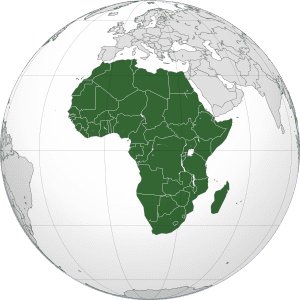
Africa will be in the limelight of the renewed Council of Exporters and Investors under the Foreign Affairs Ministry of Ukraine, said Foreign Minister Dmytro Kuleba adding that development of cooperation with the African states was one of the priorities of the foreign policy of Ukraine. “Only few days ago, we launched the Council of Exporters and Investors at the Ministry of Foreign Affairs. It now unites 120 leading Ukrainian export-oriented companies. The purpose of this agency is to simplify trade and investment between nations, and Africa will be in the limelight of this Council,” he said in a video address on the occasion of Africa Day posted on ministry’s Twitter on Monday.
Kuleba said that Ukrainian companies were already exporting grain, drinks, meat, equipment and machinery to the African countries. “The IT sector is one of the most promising in our relations,” the minister added.
He emphasized that one of the priorities of Ukraine’s foreign policy was the development of cooperation with the African states.
“Good relations between us symbolize the great prospects of our cooperation and will lead our nations to prosperity and a better life,” he explained.
According to Kuleba, now 20,000 students from Africa are studying in Ukraine, and Ukraine will be glad to see more of them.
“I’m glad that more and more Africans are choosing Ukraine for higher education. Currently, 20,000 students from the African countries are studying in our country, and we welcome more,” said the foreign minister.
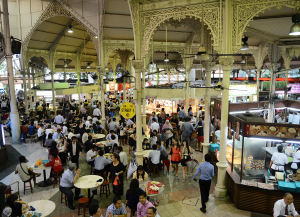
The Singapore Food Agency (SFA) has decided that Ukrainian producers of thermally processed products from poultry, pork and eggs will be able to obtain permits for exporting products to the Singapore market, the Foreign Ministry of Ukraine said.
“Any crises also bring new opportunities. The access of Ukrainian goods to the Singapore market will help our entrepreneurs increase exports, despite the coronavirus [COVID-19] crisis,” the Foreign Ministry’s press service said, citing Foreign Minister Dmytro Kuleba on Friday.
The Foreign Minister said that global markets and chains of goods supply are currently being transformed due to a pandemic, and Ukraine is able to use the changes to its advantage, first of all, revealing the hidden potential of exports to Asian markets.
Detailed explanations of the terms of export to Singapore can be obtained from the State Service of Ukraine on Food Safety and Consumer Protection.
The Foreign Ministry said that Ukrainian exporters who use the new opportunities should fill the form of the Ukrainian exporter from the Embassy of Ukraine in the Republic of Singapore (it concerns only the export of Ukrainian goods to the markets of ASEAN countries: Brunei, Vietnam, Indonesia, Cambodia, Laos, Malaysia, Myanmar, the Philippines, Singapore, Thailand) at the link: https://goo.gl/forms/wL5iAZEOk82bfv3n2.
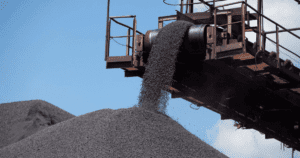
Ferrexpo mining company, with the main assets in Ukraine, increased its share in the international market of pellet suppliers to 8% in 2019 compared to 7% in 2018.
According to the company’s annual report released on the London Stock Exchange on Wednesday, March 17, Ferrexpo maintained its third position in the world ranking of pellet exporters with 10.3 million tonnes (10.2 million tonnes in 2018). Vale-group (Brazil-Oman) with the volume of 32.7 million tonnes takes the first place according to the results of the year, and the Swedish LKAB with 16.3 million tonnes takes the second place.
The Metalloinvest group (Russia) takes the sixth place with export deliveries of 7.2 million tonnes (4.2 million tonnes in 2018), the Metinvest group (Ukraine) takes the tenth place with supplies of 5 million tonnes (5.4 million tonnes in 2018), the Severstal Group (Russia) takes the eleventh place with supplies of 3.8 million tonnes (5.5 million tons in 2018).
In general, the international market for global pellet exporters at the end of 2019 is estimated at 135 million tonnes, decreased by 3% compared to 2018 (139.6 million tonnes).
The company predicted that, high barriers to entry, especially given relatively low pellet premiums, are unlikely to incentivise new pellet supply in 2020. Incumbent producers can balance supply by switching production from blast furnace to direct reduction pellets or from international export to domestic consumption. In 2020, pellet seaborne supply should not increase due to international prices moderating to historical levels and continued supply issues from Brazil. An extended period of low pellet premiums could result in some capacity reduction for producers with high pellet conversion costs. At the end of 2019, industry levels of pellet stocks were higher than the historical average and it may take some time for the market to absorb these, especially taking into account the impact of the COVID-19 virus. This could prevent pellet premiums from rising in the short term, the company said.
In 2019, Ferrexpo reduced the volume of pellet deliveries by key market regions to Central and Western Europe, as well as North East Asia (NEA), sharply increasing sales to China and Southeast Asia (SEA).
Thus, the share of pellets sales in tonnes to Central Europe is the largest one and amounted to 36% (47% in 2018). In 2019, the share of sales in Western Europe decreased from 16% to 13%, in Northeast Asia it decreased from 17% to 16%, in Turkey, the Middle East, and India sales decreased from 6% to 5%. Deliveries to China and South East Asia sharply increased from 13% to 30%. There were not any pellet deliveries to North America in 2019, while in 2018 it amounted to 1%.
In total, some 10.312 million tonnes of pellets were sold in 2019, compared with 10.227 million tonnes in 2018.
“Ferrexpo benefits from a diversified sales portfolio with leading steel mills throughout the world, while its logistics routes to customers provide a competitive advantage given Ukraine’s central geographic location. Ferrexpo’s average shipping duration to Asia is 30 days compared to its main pellet-producing competitors in Brazil (40 days), Canada (55 days) and Scandinavia (50 days). Ferrexpo is also very competitively placed in terms of shipment days to Europe and Turkey. This ensures that weakness in one region, can be compensated by sales into other regions,” the company said.
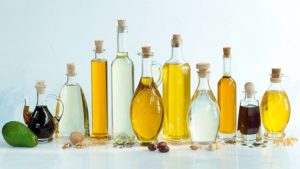
Allseeds, one of the largest producers and exporters of vegetable oil in Ukraine, has expanded the oil storage facilities at a terminal in the Pivdenny port (Odesa region) by 2.4 times, to 100,000 tonnes, according to a posting on the website of the group on Tuesday. “Recently, the capacity of the tank farm here has increased from 42,000 tonnes to 100,000 tonnes for one-time oil storage. The company is ready to fill tankers at seven loading points from six berths belonging to TIS company with a speed of up to 1,200 tonnes/hour,” the company said.
The company said that such capabilities in logistics and active mutually beneficial cooperation with partners allowed Allseeds in April 2019 to set its own transshipment record of about 100,000 tonnes of vegetable oil which corresponds to 1.2 million tonnes per year.
“So far [1.2 million tonnes a year]… Because the development plan implementation of the company’s oilseed-processing and terminal complexes in Pivdenny and its infrastructure continues,” the company said.
Allseeds Group was founded in 2010.
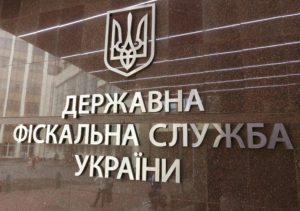
The State Fiscal Service of Ukraine in January 2019 issued 9,707 EUR.1 movement certificates that allow goods of Ukrainian origin benefiting from favorable trade terms under a preferential trade policy of the EU, the authority has reported on its website.
The authority said that in general, during the 2016-2018 years, customs officers issued 219,000 certificates.
“As of February 1, 2019, the status of an authorized exporter has been granted to 231 enterprises, which export their products to EU countries on preferential terms,” the State Fiscal Service said.
The authority reminded that in order to be granted with the preferential access to the EU market as part of a free trade area between Ukraine and the EU, a company must confirm the origin of goods from Ukraine and receive the EUR.1 movement certificate.
The State Fiscal Service has been issuing these documents since 2016 free of charge for each consignment of goods when exported to the EU. At the same time, the status of an authorized exporter lifts the requirement to receive the certificate, the authority said.
In addition, the requirement for having the EUR.1 movement certificate does not apply to goods with a total invoice value no higher than EUR 6,000, and also, if these are goods to which the EU applies a zero import duty rate.
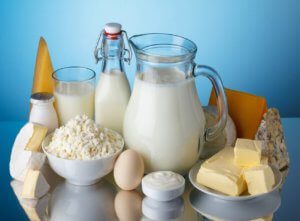
Ukraine in 2018 would enter the top ten world’s largest exporters of dairy products, First Deputy Agricultural Policy and Food Minister of Ukraine Maksym Martyniuk has said.
“Livestock breeding has begun to develop in our country. According to preliminary statistics, this year we will enter the world’s top ten exporters of dairy products. Our milking rates are growing. Animal productivity is growing, which is a good trend that needs to be supported next year,” he said at a solemn meeting devoted to the Day of Agricultural Workers in Kyiv on Thursday.
According to him, the ministry in 2019 will keep the system of state support for the agro-industrial complex and take into account the “mistakes made this year.”
“We will change the money delivery mechanisms so that as many entities working in the agrarian business as possible get these funds,” Martyniuk said.
“We are not satisfied with the way how the state support programs for the agro-industrial complex are being implemented today. We need to target this support better. I urge the associations, so that next year we can make better targeted support mechanisms to have more opportunities in the agro-industrial complex, since our the task is to do deep processing [of agricultural products] in Ukraine,” Prime Minister of Ukraine Volodymyr Groysman said at the event.
He recalled that Ukrainian agricultural products are exported to 190 countries, and the government intends to “open new markets.”